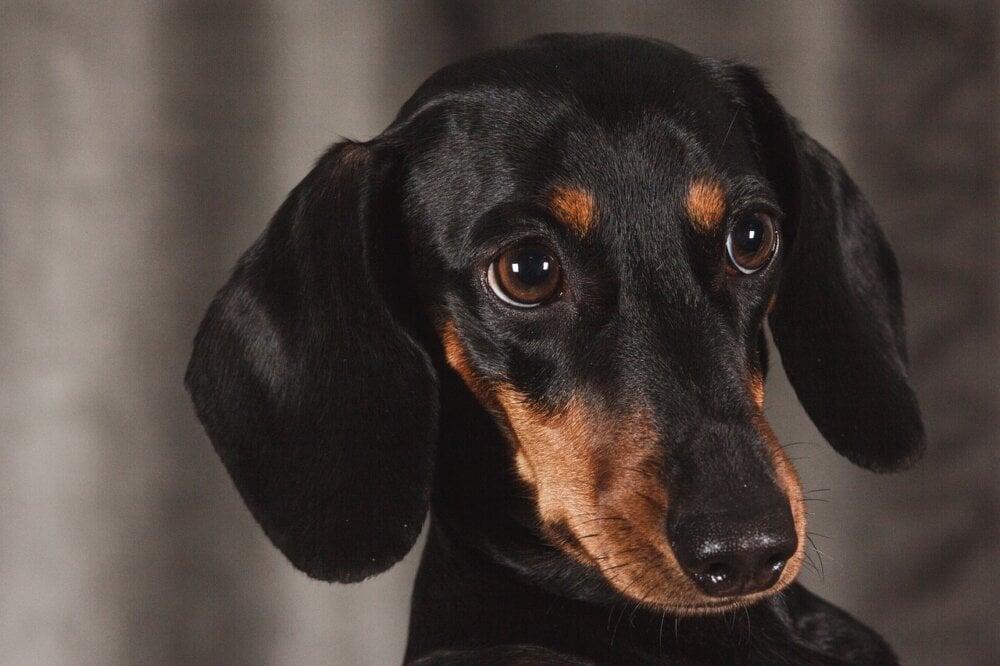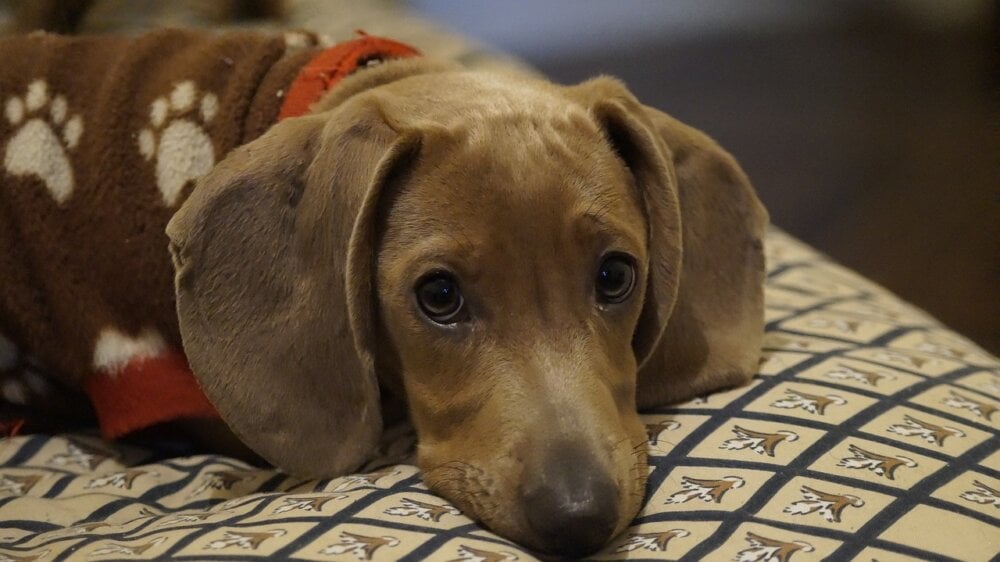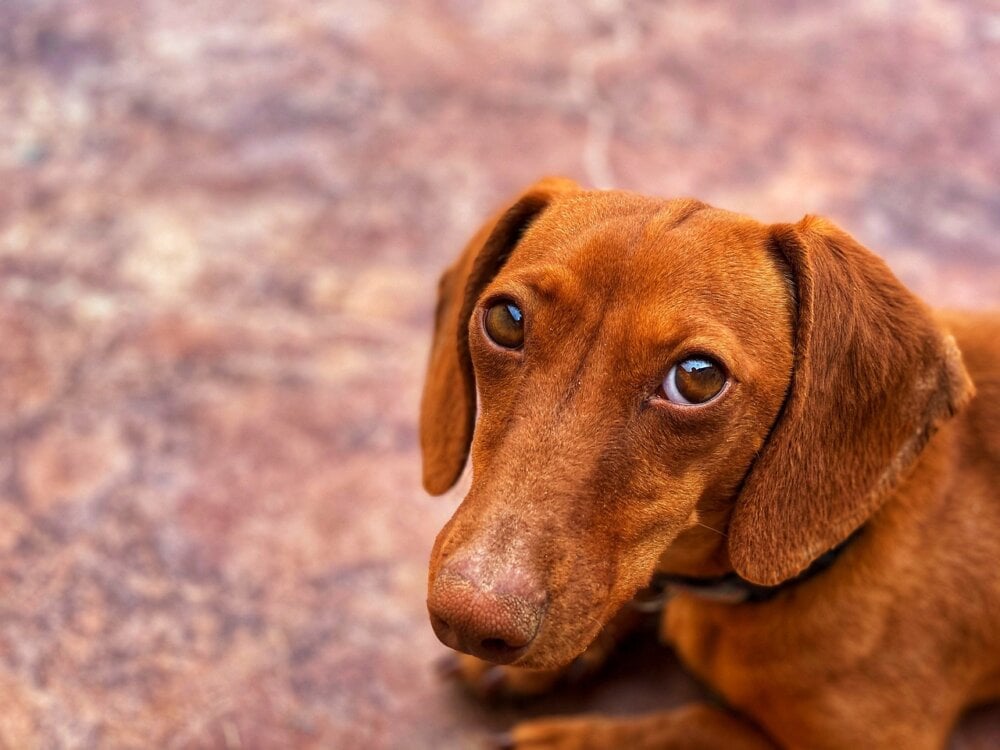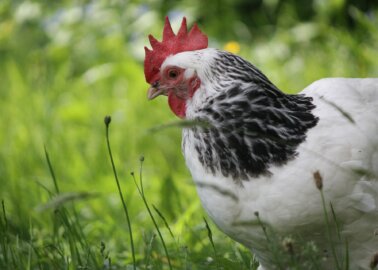5 Reasons to Ban the Breeding of Dachshunds
Because of human vanity, dachshunds suffer from painful deformities that can leave them struggling to play, run, and chase a ball – all things that make a dog’s life fulfilling. Read on to learn why you should never buy a dachshund or any other “pedigree” dog.
Dachshunds Are Victims of ‘Torture Breeding’
Humans have bred dachshunds to have short legs and long, low backs, which leads to chronic, painful health issues and causes up to a quarter of them to suffer from intervertebral disc disease.

German officials have even drafted a bill that proposes a ban on the “torture breeding” of dachshunds and other dogs with skeletal anomalies. Several other countries – including Austria, the Netherlands, and Norway – have also banned or restricted the breeding of dogs prone to deformities, such as breathing-impaired breeds like English and French bulldogs and Cavalier King Charles spaniels.
Here are five health issues common in dachshunds:
1. Chondrodysplasia
All dachshunds suffer from chondrodysplasia (disproportionate dwarfism). This is a genetic deformity that gives dachshunds their characteristic long bodies and short legs, which humans breed them to have. This condition means parts of their bodies are too big or too small to function properly, significantly affecting their physical health, quality of life, and mental well-being.
2. Joint Problems
Because of their dwarfed, disproportionate legs, it’s common for dachshunds and dachshund mixes to develop joint issues, such as luxating patellas (kneecaps that dislocate or pop out of place). Many dogs with a luxating patella start limping seemingly out of nowhere, have a “skip” in their step, or primarily use three legs when walking and running. It’s common for them to suffer from chronic pain, swelling, lameness, and arthritis. Medication can be prescribed to help limit the pain, but surgery is the only cure – and the operation is not always successful.
3. Arthritis and Diabetes
Due to their body shape, dachshunds’ unnaturally small legs carry too much weight, often causing them to develop hip and knee problems. These lifelong joint issues frequently lead to arthritis, which is painful and debilitating. Although guardians can try to manage symptoms with medication, acupuncture, and lifestyle changes, there is no cure. Diabetes, a disease in which the body can’t use glucose normally, is another ailment to which dachshunds and dachshund mixes are predisposed. Dogs with diabetes require a curated diet, daily injections of insulin, and frequent monitoring by a veterinarian.
4. Intervertebral Disc Disease
Due to their disproportionately long spines, dachshunds and dachshund mixes commonly experience back issues. At least one in every four suffers from intervertebral disc disease, a neurological disorder in which the discs between the vertebrae degenerate and compress the spinal cord, leading to pain, weakness, and paralysis.
Dachshunds are 10 to 12 times more likely to develop intervertebral disc disease than other breeds. With their heightened risk of back issues, dachshunds and dachshund mixes with elongated spines should not be carried and should be discouraged from jumping into or out of bed or the car, jumping onto or off the sofa, and running at high speeds due to the spinal stress these activities cause.
5. ‘The Black Spot’
Primary acanthosis nigricans – a skin disease that causes extremely thick, dark skin to develop on sensitive body parts such as the armpit and groin – is exceptionally prevalent in dachshunds. Although some topical treatments help to limit discomfort, there is no cure for it, and the black patches of thick skin often cause itchiness and hairlessness and lead to increased development of yeast and other bacterial infections.
A Dachshund for Sale Kills a Homeless Dog’s Chances
Health problems aren’t the only reason never to buy a dachshund or dachshund mix. Buying any dog from a breeder means that one in an animal shelter loses a potential family. Breeders and puppy mills continue to shamefully and recklessly pump out breeds destined to suffer while an estimated 100,000 dogs – and countless cats – are without homes in the UK.
If you have the time, money, patience, and love to care for an animal for life (which could be for more than 15 years), please adopt from a shelter. This way, you’ll help mitigate the companion animal overpopulation crisis and allow another animal to have a chance of finding a permanent home.
Say No to the Grotesque Breeding of Animals
Crufts is a celebration of everything that’s wrong with breeding dogs. Don’t support this parade of unhealthy breeds, and encourage your friends and family to stay away, too. The BBC dropped the unethical show following revelations about ill, inbred animals. Channel 4 and More4 must do the same.








